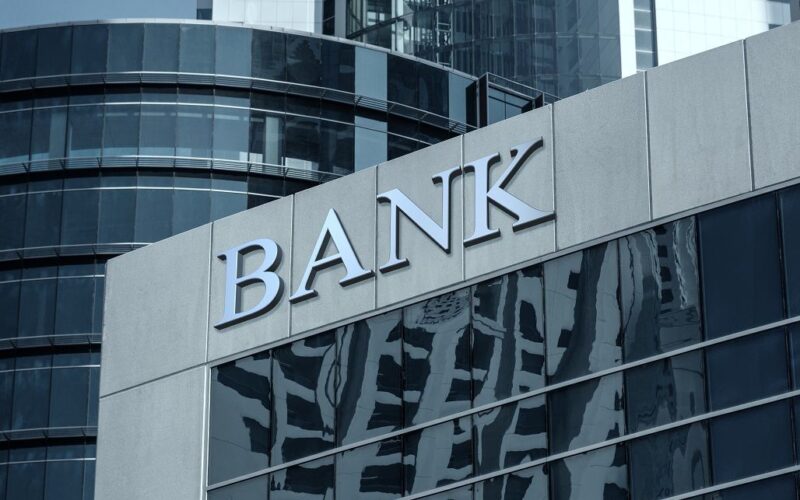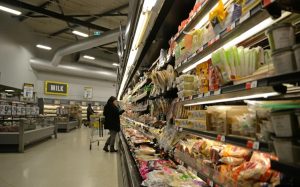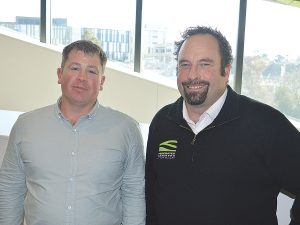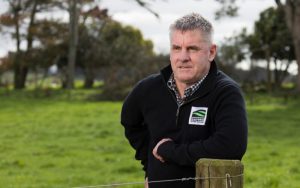
The complaint relates to potentially anti-competitive, coordinated, cartel-like behaviour from the banks.
Federated Farmers have submitted a formal complaint to the Commerce Commission, requesting an urgent investigation into the lending practices of New Zealand banks.
The complaint relates to potentially anti-competitive, coordinated, cartel-like behaviour from the banks, driven by their involvement in the international Net-Zero Banking Alliance.
“In New Zealand, five major banks dominate 97.3% of the agricultural lending market,” Federated Farmers banking spokesperson Richard McIntyre says.
“All five of those banks are either directly members of the Net-Zero Banking Alliance, or are indirectly affiliated through their parent companies: BNZ, ANZ, ASB, Westpac, and Rabobank.
“This raises some serious questions about the potential alignment of lending policies and anti-competitive cartel-like behaviour that we think deserve further scrutiny.”
BNZ is a direct member of the Net-Zero Banking Alliance, having joined in 2021. Westpac, ANZ, ASB, and Rabobank are all affiliated with the alliance through their offshore parent companies.
The banks reference their Net-Zero Banking Alliance obligations in their various sustainability reports and internal banking policies for who they will, or won’t, provide lending to.
Several of the banks have already started to put in place targets for various sectors, including reductions in financed agricultural emissions by 2030.
“Increasingly, we are seeing banks asking farmers about their on-farm emissions and setting 2030 emissions reduction targets that look remarkably similar,” McIntyre says.
“Federated Farmers aren’t opposed to individual companies setting emission reduction targets, but we do have an issue with companies potentially coordinating their targets in an anti-competitive way.
“We’re also increasingly concerned about what will happen to farmers if we’re unable to meet the banks’ emission reduction targets by 2030. Will we effectively be de-banked?
“Given the significance of farming and agricultural exports to the economy, this should be something that concerns all New Zealanders.”
Meanwhile, Federated Farmers have also sounded the alarm this week about the risk of banks defunding petrol stations by 2030 as part of their commitment to the Net-Zero Banking Alliance.
“This is a significant concern that threatens the viability of rural and provincial petrol stations across the country,” says McIntyre.
“Petrol stations are a vital lifeline for rural communities and isolated parts of New Zealand. They provide an important service, and that need for fuel is going to exist well beyond 2030.
“It’s not just farmers who depend on those petrol stations. It’s families trying to get their kids to school, local businesses, contractors, and tourists too.
“If banks are unwilling to provide lending to pay for things like upgrades, expansion or compliance, petrol stations will just disappear. What are we supposed to do then?”
Federated Farmers have been receiving panicked calls this week from a number of petrol station owners in small rural towns who are concerned about the impacts of banks’ policies.
Documentation provided to Federated Farmers clearly shows an internal BNZ policy that there is to be no new lending to petrol stations and all existing debt needs to be paid back by 2030.
“We’re worried we might see something similar happen with farming. It’s a huge concern because, without access to capital, we simply can’t farm,” McIntyre says.
“For the avoidance of doubt, Federated Farmers are not definitively saying that banks are operating in an anti-competitive cartel-like way that falls foul of the law.
“What we are saying is that it sure does look like they are, and we need the Commerce Commission to urgently investigate to give us some answers.
“The old saying goes that if it looks like a duck, walks like a duck, and quacks like a duck – then it’s probably a duck. I think the same thing could be said about cartel-like behaviour.”
BNZ appeared before Parliament’s banking inquiry on November 11, where MPs grilled BNZ’s CEO Dan Huggins and chair Warwick Hunt for an hour.
“It was good to see BNZ given an absolute roasting,” McIntyre says.
“The MPs asked some really tough questions about the bank’s behaviour, because it’s totally indefensible and requires some real scrutiny.
“BNZ struggled to adequately respond to questions about why they’re defunding petrol stations, why they’re setting emissions targets for farmers, whether they’re greenwashing, and more.
“We’re looking forward to seeing the results of this inquiry and we hope it results in a much fairer and more transparent banking system for all Kiwis, including farmers.”
You can now read the most important #news on #eDairyNews #Whatsapp channels!!!
🇺🇸 eDairy News INGLÊS: https://whatsapp.com/channel/0029VaKsjzGDTkJyIN6hcP1K
























